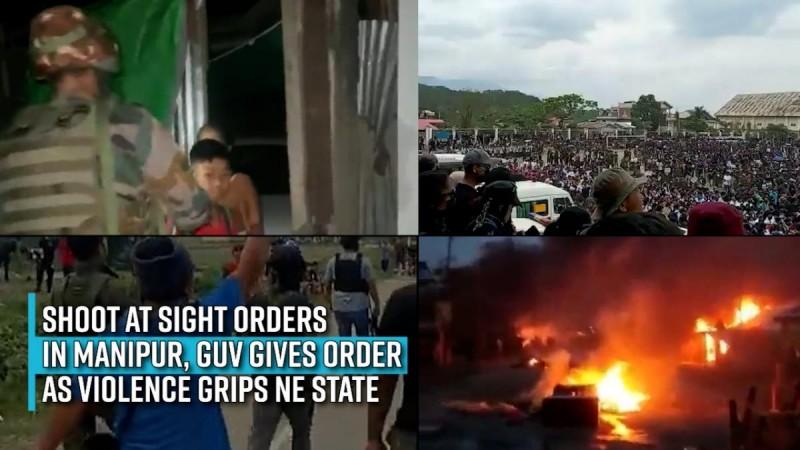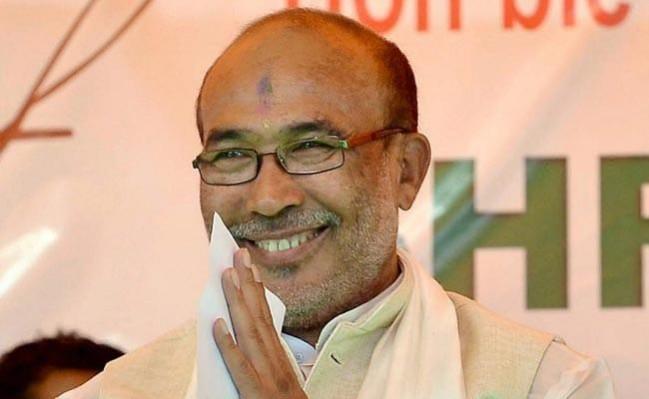It's been a fortnight since the unrest erupted in Manipur. The clashes between the state's majority Meitei community and the Kuki-Zomi tribes have brought the north-eastern state to a screeching halt and claimed at least 70 lives so far. Clashes, reported from parts of Imphal, Churachandpur, among other areas, may have begun after a few incidents, but have been in the making since long before. Reportedly, the violence has caused over 73 deaths, injured 200 and displaced nearly 30,000 so far.

How did the unrest begin?
It all began when tribal groups in Manipur called for a 12-hour total shutdown in protest against the state government's survey on reserved forests/protected forests and eviction from villages on the day of Chief Minister Biren Singh's visit to Churachandpur on April 28. Decade long social crevices, filled in with forced silence, eventually gave way after the Manipur High Court orders to the state government. Violent protests broke out against the court's decision on the inclusion of Meiteis in the Scheduled Tribes category.
A day before the CM's visit to Churachandpur, the open gym he was scheduled to inaugurate was torched, resulting in Section 144 and five-day internet shut down. Violent clashes took place between protestors and security forces, with police using tear gas shells, with one mob reportedly burning tyres on the roads.
Reportedly, an estimated 60,000 people took to streets for the Tribal Solidarity March called by the All Tribal Students Union of Manipur (ATSUM) against the court's order on the inclusion of Meiteis in the ST category. Violence erupted, Meiteis and tribals clashed on the streets, injuring at least a dozen. Prohibitory orders were issued for as many as eight districts in the state. Some put the figure of those attending the march at 2 lakh people.
By May 4, violence had spread to Imphal and security forces, including the Rapid Action Force, Army, CRPF, Assam Rifles and state police were swung into action to contain violence with government even issuing shoot at sight orders in "extreme cases."
Who are Meiteis?
Forming about 53% of the state's population, predominant ethnic group Meiteis occupy about 10% of the land area of Manipur. Once accorded the status of Scheduled Tribes, Meiteis will be able to purchase land in the hill areas, inhabited by tribals. Kuki is one of the biggest tribes in the state. Kukis and Nagas, both prominent hill tribes of Manipur, are Christians.
Political developments in the aftermath of the clashes
As the violence continues, a catholic group The Forum of Religious for Justice and Peace have written to the official church, asking how it could remain silent to the increasing violence against Christians after PM Modi came to power.
Meanwhile, according to the ground reports on fresh violence, Kuki militants fired at a Meitei village and set ablaze 15 houses.
Manipur CM meets Amit Shah in Delhi
Accompanied by four of his senior state ministers, Manipur Chief Minister N Biren Singh arrived in the Capital and met Home Minister Amit Shah late Sunday evening, close on the heels of a demand for separate Kuki administration.

The map ahead for the state
A diplomatic nightmare for any political party, several ground reports point out how the tensions between the two communities are still simmering in the state. While the Chief Minister is reportedly backed by the Meitei community, the voices asking for leadership change are getting louder by the day, especially those among the Kuki tribe.
The noise for a separate Kuki-administration has also been growing among the community, including by all 10 MLAs from the community. Notably, BJP MLA Vunzagin Valte, advisor to the CM, is one of the signatories to the demand for a separate administration for Kukis.
Is a ceasefire in sight?
The Coordinating Committee on Manipur Integrity has questioned and condemned the silence of ministers and legislators on the demand of separate administration by Kuki MLAs. It further asked as to why the government had not termed them as terrorists.
Chief Minister N Biren Singh is viewed as the one with a tough stance. He defends the government's clampdown on protected forests as action against the encroachment in the hills by tribal communities. It is also an action, what he calls, against the many acres being used for poppy cultivation. The government sees the survey of protected forest lands as a crackdown against drugs. The Kukis on the other hand claim to feeling persecuted, and being classified with the blanket term, "drug lords." The need of the hour remains a policy that will recognise new villages, a transparent forest policy that would not displace the tribals.














